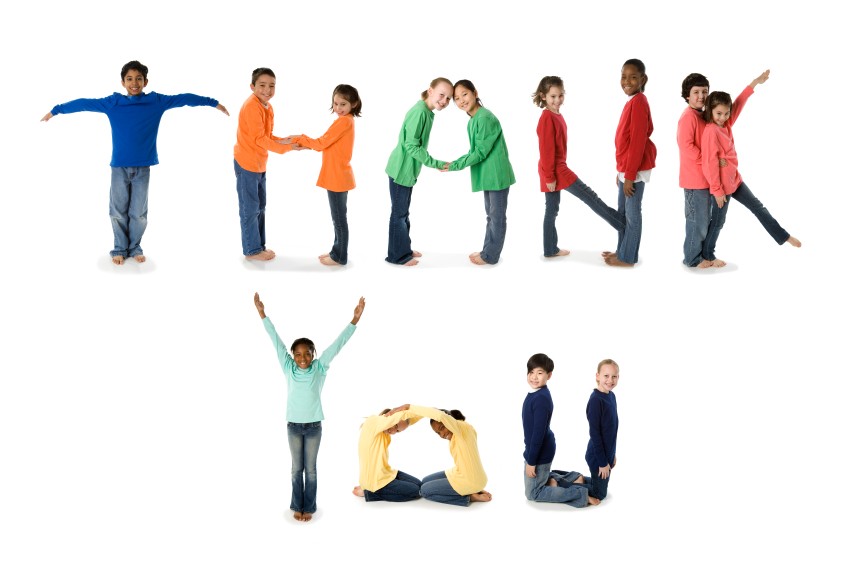Print
this page
Preventing Burnout in the People Who Help Us
Meredith G. Warshaw, M.S.S., M.A.
Special Needs Educational Advisor
1. Treat the parents with kindness and courtesy.
People who are treated with courtesy and kindness are less likely to become angry. If they do become angry, they are more likely to focus their anger away from you if you treat them nicely. Parents are much more likely to file due process hearings or complaints if they are treated badly.
2. Make parents feel like they are an important part of the IEP Team. I worry that the people in the system who are helping me and our kids
will get burned out and quit - which is the last thing we want to
see!
 So, having discovered how much it cheers and reinvigorates me when
I get thank you notes from clients or others I've helped, I've started
a campaign to spread the cheer. It takes just a few minutes of time,
and can be done by email or snail mail.
So, having discovered how much it cheers and reinvigorates me when
I get thank you notes from clients or others I've helped, I've started
a campaign to spread the cheer. It takes just a few minutes of time,
and can be done by email or snail mail.
Thank You Note to a Person Who Helped You
If
you only have 2 minutes, just write a quick "thanks". However,
if you can spare a little more time, being specific lets people know
that others are noticing the extra touches that take time and caring,
and provides positive reinforcement.
For example, when I wrote a thank you note to our pediatrician (who
got us through a very difficult year), I stated specifically that
I appreciate that he never makes us feel rushed, that he has a good
rapport with my son, that he takes my concerns seriously, and that
he makes me feel comfortable asking questions about his clinical reasoning.
Since these are things that are often problems when dealing with medical
professionals, it is important to give positive feedback to those
who get it right.
Similar notes to OTs, psychologists, teachers, and advocates are always
appreciated.
Thank
You Note to a Supervisor
It makes a big difference to people if their supervisors
hear that they are doing a good job.
If the person you want to thank works for an agency or a school, consider
writing a letter to her supervisor, with a copy to the person you
are praising. Being specific tells supervisors that this is not just
a generic "thanks", lets them know about their employees'
strengths, and lets them know what matters to the people they serve.
However, if someone has done helpful things that might get him in
trouble with "the powers that be" or if you are in a contentious
relationship with the school or agency, thank the person who has helped
you privately (verbal thanks or baked goods are always welcome), but
do not send a letter to the supervisor, since you could inadvertently
get the person into trouble or jeopardize any future complaints you
make.
Praise Helps Everyone
Since I started thanking people, I have been reminded repeatedly how
often workers and managers hear complaints but not praise. For example,
when I got special help from the emergency vet and asked to speak
to a manager to praise the care we had gotten, her first reaction
was "what's the problem you need help with?", and then she
was effusive in her thanks and appreciation that I'd taken the time
to give a compliment.
As a side benefit, I feel much happier after I've thanked people.
It helps me realize that there are good people in the system, that
I'm getting help as well as hindrance, and that I have something to
be thankful for.
And, in the vein of helping our advocacy, I have no doubt that the
people I thank are more likely to help me and others next time the
opportunity arises, now that they know that their help is appreciated.
About
the Author
Meredith
Warshaw, M.S.S., M.A., works as a Special Needs Educational Advisor,
helping with families of gifted/special needs children better understand
their children's needs. She also writes articles and speaks at conferences
on the special needs of this group of children. She is a Contributing
Editor and member of the Editorial Board for the new publication 2e:
Twice-Exceptional Newsletter
Meredith is creator of the Uniquely
Gifted website of resources, which includes links to information
on specific special needs, giftedness, special education advocacy,
bullying, and more.
She is also cofounder of the GT-Special
email list for families with gifted/special needs children. After
school and her twice-exceptional son proved a bad fit, they embarked
on the adventure of homeschooling, which lead to the creation of the
GT-Spec-Home email
list for families homeschooling twice-exception children.
Meredith is also listowner for the Council
of Parent Attorneys and Advocates (COPAA) email list.
Contact Information:
Meredith Warshaw, M.S.S., M.A.
mwarshaw@uniquelygifted.org
http://consult.uniquelygifted.org/
Links:
Advocacy & Letter-Writing
Paper Trails, Letter Writing and Documentation
Using Story-Telling in Letters to Persuade
Art of Writing Letters
Summer School Short Course: Advocating Through Effective Letter Writing
12 Rules for Writing Great Letters
Writing the "Letter to the Stranger"

